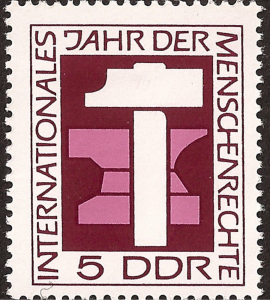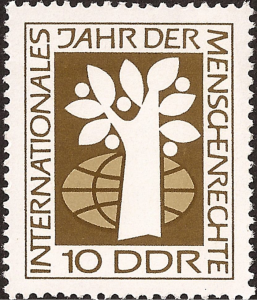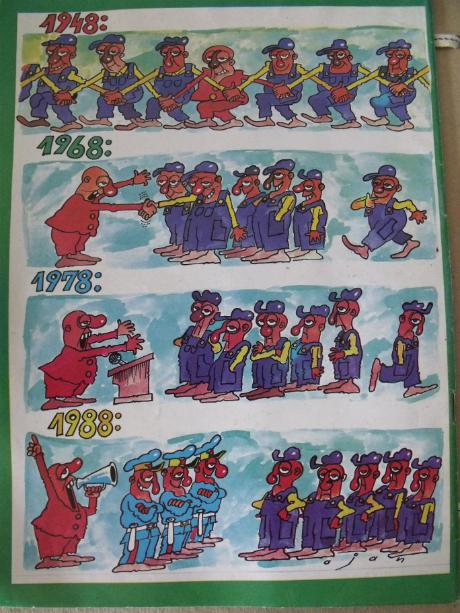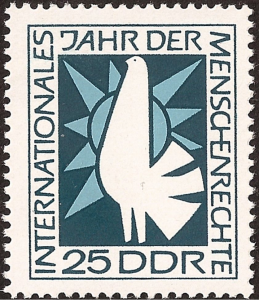The Future of the Past: Why the End of Yugoslavia is Still Important
Posted on 31 March, 2014 in1989 after 1989 End of Yugoslavia

By Ljubica Spaskovska
A new socialist model is emerging in the western Balkans. Can its political vocabulary transcend the ethno-national dividing lines in the region?
‘New project for democratic socialism in Yugoslavia’ read the title of the resolution for the last congress of the League of Communists of Yugoslavia. It was January 1990.
As the Yugoslav Party was writing the last pages of its seventy-year old existence, few were left who believed in the viability of the project of democratic socialism. ‘The liberal utopia which underpinned 1989’ was the idealized way the socialist East and South imagined ‘the West’ and liberal democracy. In the aftermath of the last Yugoslav party congress, even fewer could imagine that ‘democratic socialism’ could ever be resurrected as a viable political project.
Almost a quarter of a century later, however, the Slovenian ‘Initiative for democratic socialism’, the Democratic Labour Party and the Sustainable Development Party have announced the establishment of a ‘United Left’ coalition. These non-parliamentary leftist groups will present their bid for a new socialist model in Europe at the upcoming EU elections in May. While the recent wave of protests in Bosnia-Herzegovina, and on a smaller scale in Macedonia, have raised social concerns and acted as a vent for rebellion against the political and economic mismanagement by elites, Kosovan students at the University of Prishtina made a strong case against structural corruption and fraud, eventually succeeding in deposing the Rector.
Many of those who found themselves at the forefront of these ‘acts of citizenship’ have been young people who came of age in the post-socialist period. The Kosovan student protesters, the Macedonian activists for social justice in the leftist groups ‘Solidarity’ and ‘Lenka’, the organizers of the Zagreb Subversive Forum, and the activists in the Slovenian Initiative for democratic socialism, belong in a pool of activists groups, initiatives or centres for research that espouse progressive politics while they have sought to deconstruct the ‘liberal utopia’ of the post-socialist period. They are unquestionably part of a new political generation (or, a ‘generation unit’, to use Mannheim’s terminology) whose political subjectivities, demands and visions represent a departure from those that twenty-five years ago ushered in the post-Yugoslav era.
How to account for this sudden post-Yugoslav outburst of social discontent and the resurrection of a long-forgotten vocabulary, where social rights, democratic socialism, the working class and the dispossessed feature rather prominently? Beside the generational factor, one possible answers lies in the concluding paragraph of last month’s open letter to the international community signed by 130 scholars and academics from around the world:
“In [the] spring of 1992, Bosnian citizens staged in Sarajevo the largest demonstrations ever against all nationalist parties. They were silenced by snipers, and their voices, from that point on, ignored by the international community. This time, the world should listen.”
Indeed, the conventional narrative of the 1980s, as the climax of political skirmishing and ethnic hostility, has so far managed to conceal a major stream of critique that was silenced by the subsequent armed conflicts and progressively erased in the new nation-states. The last Yugoslav public opinion survey conducted in 1990, from a sample of 4,230 adults, revealed clear divisions along lines of ethno-national belonging.
However, there was one part of the survey where Yugoslav citizens appeared strikingly unanimous. Namely, respondents were asked if expenditures on education, culture, healthcare and social security should be reduced. 74% of Bosnians, 66% of Montenegrins, 81% of Croatians, 71% of Macedonians, 72% of Slovenes, 79% of Serbs, 80% of Kosovans and 84% of Vojvodinians said this budget should be either increased or the present level of spending should be maintained. Moreover, the survey found that the ‘democratic optimism’, i.e. a support for a multi-party system was highest among Kosovans and Slovenes (19%) and lowest in Bosnia-Herzegovina (4%). Indeed, respondents from ethnically-mixed regions expressed fears that a multi-party system would exacerbate inter-ethnic divisions.
One of the spheres where many of these debates took place during the 1980s was the Yugoslav press and, in particular, the so far scarcely researched youth press. A commitment to exposing socio-economic structural inequalities and forms of corruption, especially among top Party officials, came to define the increasingly vocal youth press that was subject as a result to ongoing bans, trials and public discrediting throughout the 1980s. This led foreign scholars to observe that:
“Of all the periodical publications appearing in Yugoslavia, it is the youth press which has proven the most consistently nettling to the authorities. Outspoken to the point of rebelliousness, the young editors […] have repeatedly ignored even the most fundamental taboos”.
Pedro Ramet, ‘The Yugoslav Press in Flux’, in Pedro Ramet (ed.) (1985), Yugoslavia in the 1980s, p.111
Young journalists tended to link these phenomena to the authoritarian traits of Yugoslav socialism, in particular the Party’s elites and their monopoly on power. In December 1984, for instance, the Croatian youth magazine Polet published an ironic call for the ‘Big, bigger, the biggest Yugoslav competition for the photograph of the most beautiful, richest, most luxurious and most unavailable house for the working class on the territory of the former Yugoslavia’, printed over a black and white photo of a big mansion. It also noted that ‘precedence will be given to the photographs which will also supply information about the location, the size, the owners and their occupation’. Four years later, the main Bosnian youth magazine Naši dani was at the helm of a big public debate which exposed the practice of building summer villas by high Bosnian political officials at the sea-side resort of Neum. One article unreservedly attacking high-ranking politicians put forward demands which could be heard in a modified form at recent protests: ‘To nationalise what had been robbed. To take away once and for all from the red bourgeoisie and give to the working class’. Finally, a similar affair burst into the open when Slovenian youth magazine Mladina accused the federal Minister of Defense of having a summer villa constructed for himself by army recruits in the sea resort of Opatija.
As the decade drew to a close and the Yugoslav sonderweg led many to believe that the multi-level crisis was a dead-end street and that violence was looming, many voices warned at the prospect of elites capitalizing on social discontent and posing as national saviours. Even regions like Macedonia, which were later spared from the violence of the dissolution conflicts, were mired in a new nationalist rhetoric and calls for prohibition of ethnic minorities’ political parties. The way the editor-in-chief of the youth magazine Mlad borec, Nikola Mladenov targeted the rise of nationalism in his editorials, both at Yugoslav and local level, captures this:
“As if it became a civic duty to propagate national tragedy and vulnerability. In place of one collectivity – the class, we are being offered another one – the nation, the easiest way of manipulating the emotions of tomorrow’s voters. The propagating of one’s one history – always the most bloody and most difficult – hasn’t bypassed us either […]”
For two and a half decades former Yugoslavs were repeatedly reminded of their national tragedies, bloody histories, or their victimhood at the hands of neighbours. They were encouraged, if not forced, to erase out of their memories and identities that other collectivity – the class. What the Bosnian student magazine Valter wrote in 1990 indeed reads like a prophecy:
“We should not have any doubts that this is a period where we’ll see a formal change of government, accompanied by strong disillusionment of manipulated voters. Because exclusive anti-communism does not imply automatic creativity; on the contrary, the motives are quite banal and easily recognisable – taking power.”
A generational shift, growing inequality, deterioration in living standards and the withering away of social rights have undoubtedly proved crucial for the emergence of a new political vocabulary and a range of demands which appear to neglect, if not transcend, the ethno-national frame. However, it remains to be seen whether the social(ist) utopia that underpins this shift is going to successfully restore some of the betrayed hopes of the late 1980s.
Bibliography:
George Lawson, Chris Armbruster and Michael Cox (eds.), The Global 1989: Continuity and Change in World Politics (Cambridge University Press, 2010).
Ljuljana Baćević, et al. Jugoslavija na kriznoj prekretnici (Beograd: Institut društvenih nauka/Centar za politikološka iztraživanja i javno mnenje, 1991).
Pedro Ramet, ‘The Yugoslav Press in Flux’, in Pedro Ramet (ed.), Yugoslavia in the 1980s (Westview Press, 1985), p.111.
‘Veliki, veći, najveći’, Polet 292, 21.12.1984, p.10.
Radmilo Milovanović, ‘Neum ili dolje crvena buržoazija’, Naši dani 949, 2.9.1988, p.7.
Nikola Mladenov, ‘Народе македонски’, Mlad borec 1971, 07.03.1990.
Goran Todorović, ‘Sveti Ante’, Valter 28, 17.4.1990, p.2.
Writing Human Rights into the History of State Socialism
Posted on 24 March, 2014 in1989 after 1989 Human Rights

By Ned Richardson-Little

One of a number of East German postage stamps commemorating International Human Rights Year 1968. The hammer and anvil represent the right to work
The collapse of the Communist Bloc in 1989-1991 is viewed as one of the great triumphs of the human rights movement. But this ignores how socialist elites of the Eastern Bloc viewed themselves: not as the villains in the story of human rights, but as the champions.
In recent years, the rapidly expanding field of human rights history has done much to complicate triumphalist narratives of inevitable victory for Western liberal democracy over the forces of tyranny. Recent collections including those edited by Stefan-Ludwig Hoffmann, Jan Eckel and Samuel Moyn, have opened up new lines of inquiry exposing not only the contingency of these ideas, but also the conflicts amongst those claiming the mantle of universal human rights. On the Exeter University Imperial and Global History Centre blog in recent weeks, Fabian Klose has examined the important role of decolonization and post-colonial states in shaping the development of human rights politics, and Robert Brier has interrogated the idea of human rights as a product of neo-liberalism in the context of the Polish opposition. Here, I want to look beyond the human rights campaigns of dissident Eastern Europeans to that of the states they fought against.
While state socialism is normally seen as the definitional opponent of human rights – rejecting individual autonomy, independent justice, free elections, free speech and free practice of religion – the elites of the Eastern Bloc claimed that they were actually the true representatives of human rights. For them, the revolutionary victory over capitalism meant the end of class conflict and the abolition of the “exploitation of man by man.” The creation of a socialist society overcame the horrific abuses of the capitalist system, including war, imperialism and racism.

Another stamp commemorating International Human Rights Year 1968. The tree and globe represent the right to life
Eastern Bloc elites built upon Karl Marx’s denunciation of human rights rhetoric as a tool of the bourgeoisie to disguise their own class interests in the cloak of universal justice. They argued that while human rights were indeed a sham under capitalism, the socialist revolution had created a higher kind of human rights that allowed for real participation in all forms of political and economic life and achieved true equality across the class, race and gender lines. As the East German legal philosopher Karl Polak declared, “There can be no human rights without socialism!”[1]
When such rhetoric from the Eastern Bloc has been noted in histories of the Cold War, it is usually dismissed as a crude and cynical attempt to deflect Western criticism, particularly after the signing of the Helsinki Accords in 1975. That is, once the communist states were compelled to affirm the idea of human rights, they simply had to adjust their rhetoric in a desperate attempt to fend off protest from within and without.[2] These narratives are undermined, however, by the fact that state socialist elites were using the language of human rights well before Helsinki – the quote above from Karl Polak dates to 1946. In Hungary, the first scholarly work on human rights and socialism was written by legal scholar Imre Szabo in 1948.[3] As Jennifer Amos and Daniel Whelan have demonstrated, the Soviet Union was an active player in the human rights diplomacy of the 1950s. Such early efforts weren’t just rhetorical or academic: the German Democratic Republic formed the Committee for the Protection of Human Rights to campaign against abuses by the West and to mobilize citizens to campaign against the imprisonment of communists and peace activists in West Germany. Founded in 1959, this group predates the creation of Amnesty International by two years.
The 1970s are today seen as the turning point when international human rights exploded as a global movement, but at the beginning of the decade, it appeared to some observers that the West was simply outmatched by the Socialist Bloc. By 1968, the entirety of the Eastern Bloc had either signed or publically affirmed the UN’s International Covenant on Civil and Political Rights. While the United Kingdom, Italy, and West Germany did so early on, other Western countries lagged well behind with Canada signing in 1976, the USA in 1977 and France in 1980. In 1973, one observer from West Germany concluded,
With the change in majorities in the bodies of world organizations – particularly in the [UN] General Assembly – the socialist states have recognized the possibility of the politicization of human rights, and the free world has almost cleared off the field without a fight: the US by its human rights abstinence, the Western European countries by their regionalism.[4]
While the Helsinki Accords are now often portrayed as a coup for the West in “forcing” the East to accept terms that would eventually lead to its downfall, at the time, the idea of human rights was hardly seen as a devastating ideological weapon.
Including the perspective of state socialist leaders and elites is crucial to understanding human rights diplomacy in the post-war era. Such ideas and politics also were crucial to state socialist rule and influenced the development of dissident and opposition movements, as I have recently argued, along with Benjamin Nathans, Paul Betts, and Mark Smith and others. Celia Donert’s recent work similarly demonstrates how the explosion of women’s rights as human rights in 1990s can be in part traced back to the transnational feminism organized through Eastern Bloc organizations and events that have been dismissed as mere propaganda for communism. Rather than simply seeing the rise of human rights movements in the East as a direct importation from the West, this new scholarship shows how 1989 was also connected to the evolution of indigenous right cultures that were initially fostered by the state. This line of inquiry is not only valuable to the study of the Cold War and its end, but also to explaining the development of human rights politics in the post-socialist period.
In challenging liberal Western triumphalism, it is also vital to consider the perspectives of the socialist East. The appropriation of the idea of human rights by non-liberal and even dictatorial states is no relic of Cold War dynamics long since departed, but is continuing to this day in Iran and North Korea. In grappling with the developments of 1989, political scientist Peter Juliver argued that one had to begin a process of “rethinking rights without the enemy.” I would argue that in order to do so, we first must rethink the history of human rights including the “enemies,” and not just the victors.
[1] Karl Polak, “Gewaltteilung, Menschenrechte, Rechtsstaat: Begriffsformalismus und Demokratie,” Einheit 7 (December 1946): 138.
[2] For the main work asserting the discontinuous effect of Helsinki Accords for the Eastern Bloc, see Daniel Thomas, The Helsinki Effect: International Norms, Human Rights, and the Demise of Communism(Princeton UP, 2001) as well as Michael Ignatieff, Human Rights as Politics and Idolatry, University Center for Human Values series (Princeton UP, 2001), 19, which argues that the Eastern Bloc denied the validity of political and civil human rights prior to Helsinki.
Welcome
Posted on 4 March, 2014 inUncategorized
Welcome to the 1989 after 1989 blog.
Do keep checking back for news and views from the project team!
[Top]





